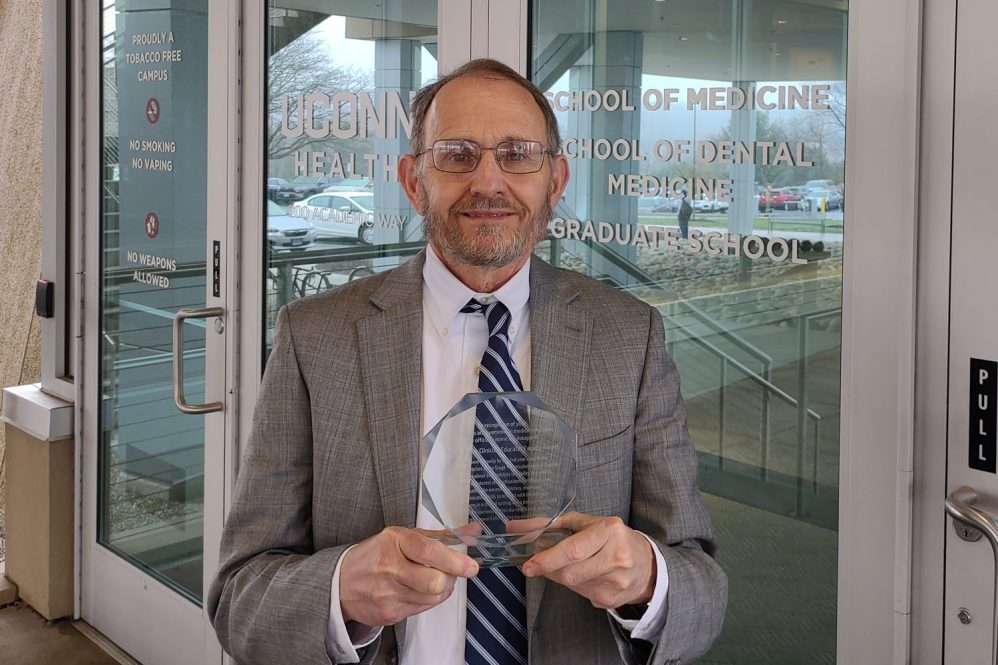UConn’s second-year medical and dental students are honoring their faculty with teaching awards, including three new honors unveiled Monday, two of them named in recognition of longtime professors.
At the Class of 2024 Student Clinician Ceremony, the students introduced the Dan A. Henry, MD, Clinician Educator Faculty Award, in honor of Henry’s “dedication to teaching and mentoring throughout all stages of the School of Medicine curriculum, recognizing excellence in application of foundational science to clinical applications, clinical reasoning, and ultimately patient care.”
“I am shocked but honored,” says Henry, a professor in the Department of Medicine. “I am very proud of the comments, which do an excellent job of describing what I have worked to achieve my entire career.”
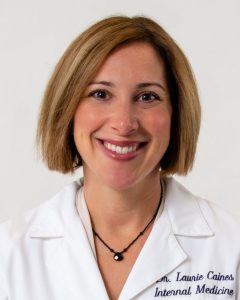
The Dan A. Henry, MD, Clinician Educator Faculty Award recognizes a faculty member who teaches in the pre-clerkship clinical courses “who students believe best exhibits the ability to evoke in students an interest and enthusiasm for clinical care,” starting this year with Dr. Laurie Caines, associate professor of medicine.
From the students’ nomination:
“Dr. Caines makes sure we understand the material well and most importantly does so in an efficient manner. She never wastes time and makes sure everything in class has a direct clinical application. Her stories of parallels between things she saw in her own practice and how they manifest in the material we were learning always kept class engaging. Her patients should be grateful they get to experience the care of a human as compassionate and intelligent as her. Thank you!”
Caines says she’s honored to be the first recipient of the award named for Henry, who was a professor and advisor to her while she was a UConn medical student (Class of 2006).
“I learned so much from him, ranging from things like pathophysiology to what to include in an oral presentation, but what I truly admired was his obvious love for medicine and the joy he experienced in getting a student to understand a difficult concept.” Caines says. “He is notorious for challenging exams, but this is because he wants students to understand the basic pathophysiology in order to provide excellent clinical care. I think it is important to have these high expectations of students because UConn students can absolutely rise to the challenge and are better for it. He is a wonderful mentor, helping me match at my top residency choice and then guiding me again as a young faculty member when I returned to UConn. I have been learning from Dr. Henry for a solid 20 years and I can’t thank him enough for his teaching and guidance over the years. This award means so much to me.”
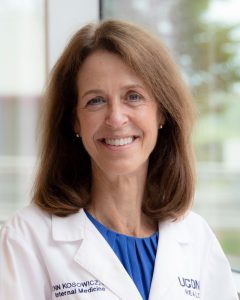
The first Lynn Y. Kosowicz, MD, Clinician Educator Committee Award, went to the Clinical Longitudinal Immersion in the Community (CLiC) committee.
“I am humbled and honored to have my name associated with the new Clinician Educator Committee Award,” says Kosowicz, professor and interim chair of the Department of Medicine. “I am passionate about how important early clinical education is to the development of outstanding physicians, and am deeply grateful to the education leadership team for recognizing pre-clerkship clinical education with this new award.”
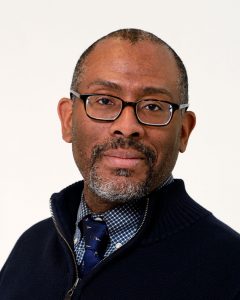
Dr. Anton Alerte, interim associate dean for primary care, directs the CLiC committee.
“To be appreciated by students as impactful is satisfying,” Alerte says. “To be honored with an award is heartwarming, but to also receive an award named in honor of Lynn Kosowicz is jaw-droppingly amazing and humbling.”
As part of the UConn School of Medicine’s M Delta curriculum, CLiC pairs students with a physician in an outpatient practice, enabling student interaction with actual patients.
“Clinical Longitudinal and Immersion in the Community is the course which places students in doctors’ offices to develop and hone their skills as future physicians,” Alerte says. “Everything they learn about being a doctor at the school is immediately translated into actual practice under the watchful eyes of our community preceptors. It is one of the major reasons students pick UConn for medical school. Although I accepted the award, it is our faculty who won it.”
The third new award, the UConn School of Medicine Coaching Award, recognizes someone within the school’s coaching program who helps students reach their goals, improve performance, contribute to their development, and build trust within their coaching group.
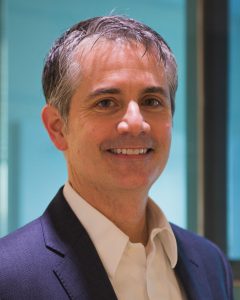
The Coaching Award recipient is David FitzGerald, assistant professor of psychiatry.
“I cannot imagine going through the M Delta curriculum without the unwavering positivity and support of Dr. FitzGerald,” says one of the students who submitted a nomination. “If I had a question or concern, he immediately jumped into action to put me in contact with the right person, and — if he didn’t know who I should go to — went out of his way to find the resources I needed. After the stress of a long block, I sincerely looked forward to our meetings because it was ‘home base’ and a place that I felt incredibly supported. Especially in the face of a virtual first year, it felt like I had someone in my corner even if I were to stumble or struggle.”
“I thoroughly enjoy being an academic coach for our medical students,” FitzGerald says. “The opportunity to work with our future physicians as they integrate all facets of their learning into their larger clinical and social demands is a privilege and pleasure. I am thankful that the School of Medicine has created this program and appreciate the opportunity to contribute to the development of our future physicians.”
The students also presented the traditional Charles N. Loeser Award and the Committee Award for Meritorious Educational Leadership (CAMEL).
The Loeser Award recognizes “the ability to evoke in students an enthusiasm for learning and a desire to emulate his/her own attributes of scholarly curiosity, and give wholeheartedly of themselves to advance the welfare and education of students.
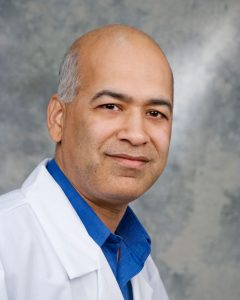
This year’s recipient is Dharamainder Choudhary, assistant professor of surgery, described by one of his student nominators as “one of my favorite parts about coming to UConn, he is the most engaging and active professor I have ever had.”
Another nominee says Choudhary “always gives students the perfect amount of help without giving too much away, but leads us in the right direction such that we end up coming to the correct conclusion. Also just an awesome guy in general!”
“The students and colleagues are my strength,” Choudhary says. “I feel humbled and grateful for the love and affection given by the students. I hope our journey of learning, teaching and sharing knowledge continues.”
The 2022 CAMEL honoree is the Clinical Reasoning course, organized by Henry and Yvonne Grimm-Jorgensen, assistant professor in the Department of Cell Biology, and taught by a cadre of UConn Health academic physicians and fourth-year medical students.
From the students’ nomination:
“This course provided our first opportunity to genuinely feel like a medical student and think like a future physician… I wholeheartedly believe this is the most useful course in the Stage 1 curriculum.”
The Clinical Reasoning course uses a problem-based learning approach intended to teach students to critically analyze a set of data, determine what information they have to access and learn in order to solve the problem, then find a solution and communicate it to others in the group.
“Of course Dr. Henry and I are greatly honored that the course has been awarded the CAMEL award,” Grimm-Jorgenson says. “Please note that this award is not given to an individual, rather it is awarded to a course and to all the dedicated individuals who spent countless hours facilitating the group discussions. This course would not be possible without the dedication and effort of many talented physicians (and fourth-year medical students) who serve as facilitators and guide the students through every aspect of their challenging learning experience.”
